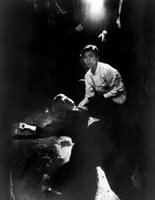Whew. The past four days have been a nice break. No
labwork, no soccer, and a whole lot of nothing. It was fabulous. I ate turkey with all of the fixings at my aunt and uncle's house, I caught up with friends and family, I did laundry, I drank too much at a friend's 30
th birthday party, I viewed football (damn those Trojans), and I watched two movies.
 Water
Water is the third movie in a trilogy from Indian filmmaker
Deepa Mehta. Set in 1938, the story begins with a young girl,
Chuyia, who has become a widow when the older man she was married to dies of
illness. Not even ten years old, the child widow has her head shaved, is dressed in a white sari, and dropped off at a house of widows. According to the Hindu custom, a widow has three options: to kill herself on the husband's funeral pyre, to marry the husband's younger brother, or to spend the rest of her life in an ashram, the widow house. Considered cursed, the widows are treated as outcasts by society and forced to beg and worse for survival. The arrival of the vibrant
Chuyia is like a breath of fresh air for the other widows in the house, and the young girl makes friends easily with the beautiful
Kalyani, who has also lived as a widow since childhood, and
Shakuntala, whose deep faith in the Hindu religion is the sole antidote for her tragic existence. The solemn status
quo of the widow house is further thrown off balance when a handsome idealist falls in love with
Kalyani and intends to marry her, thwarting traditional customs and the wishes of his parents. Although the young lovers form the center of the story, I found the pious
Shakuntala the most compelling character. She uses her faith to rationalize her own suffering, but the knowledge of the life that awaits the innocent child
Chuyia causes her to question her long held beliefs. The actress who plays
Chuyia does an amazing job; she was only eight years old at the time of the filming.
Water is a sad, gorgeously shot, and powerful film. Although
Deepa Mehta tells the story objectively, it is impossible to watch it without feeling a sense outrage for how the women are treated and a great distaste for the culture that permits it. Although India has changed significantly since 1938,
Mehta is a very controversial filmmaker, and Water had to be filmed in
Sri Lanka after the set was burned down by protesters in India.
Yesterday, I went to see Casino
Royale, and it was sold out, so I watched
Bobby instead. Written and directed by Emilio
Estevez, Bobby tells the story of the assassination of Robert F. Kennedy through the eyes of the employees and guests of the Ambassador Hotel, where he was killed in 1968. One of the central characters, a Mexican busboy named Jose, was inspired by this famous photograph:

The large ensemble cast and intertwining stories work well in some places, and fall short in others. Sharon Stone steals the show as a beauty stylist, and Christian Slater is believable as the bigoted kitchen manager. Even Lindsay
Lohan and Aston
Kutcher play their roles adeptly.
Joshua Jackson excels as
RFK's local campaign manager, and sure is pleasurable to watch (
hottie alert!). However, Elijah Wood will always be
Frodo, and Laurence
Fishburne Morpheus, in this viewer's eyes. The only character I felt should have been cut entirely was Anthony Hopkins, whose retired doorman felt extraneous and sappy.
RFK himself does not appear in the movie, aside from old news clips of his speeches and campaign stops. He is portrayed as the nation's great hope in a turbulent era filled with racial strife and political turmoil, and this deification may annoy the more conservative members of the audience. Of course, I'm a
Kennedyphile from the bluest state in the union, so it didn't bother me at all. The movie did make me sad that
RFK died and we never found out what kind of President he would have become, sad for all of the people who believed in him, and sad that our current Democratic leaders don't even come close to inspiring me the way that
RFK inspired his followers. Overall, I liked Bobby but thought it was a bit too much- both in terms of
preachiness and the sheer volume of characters that appear on screen. A little subtlety can go a long way.


























